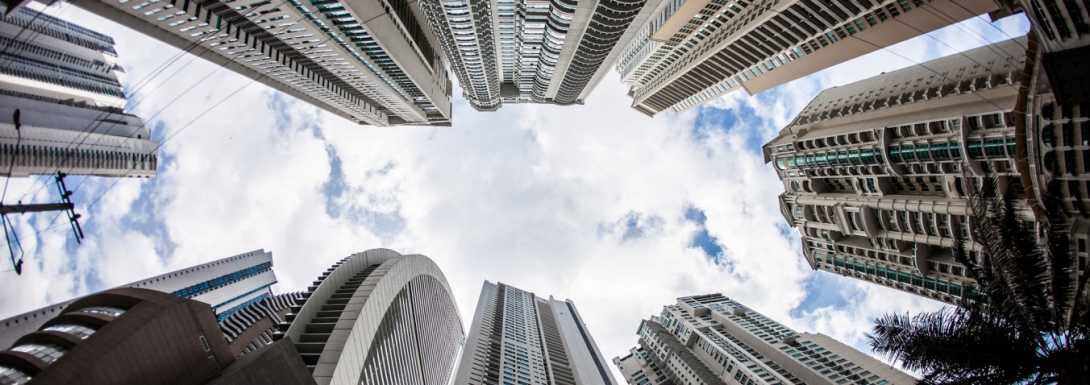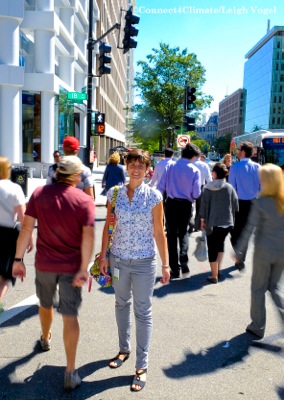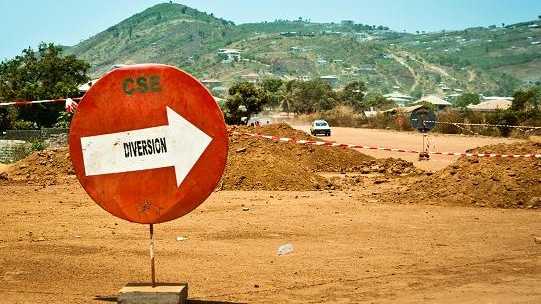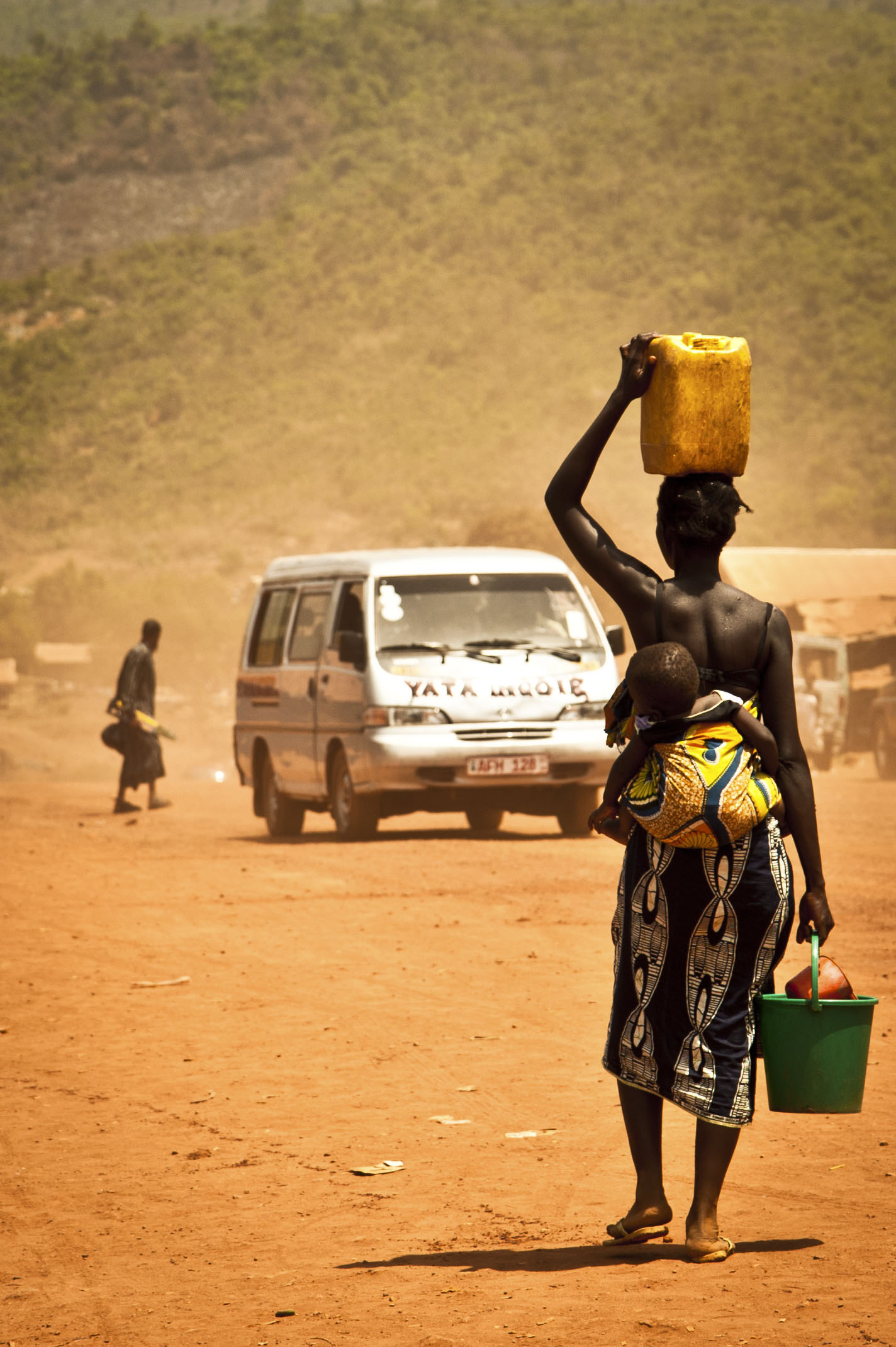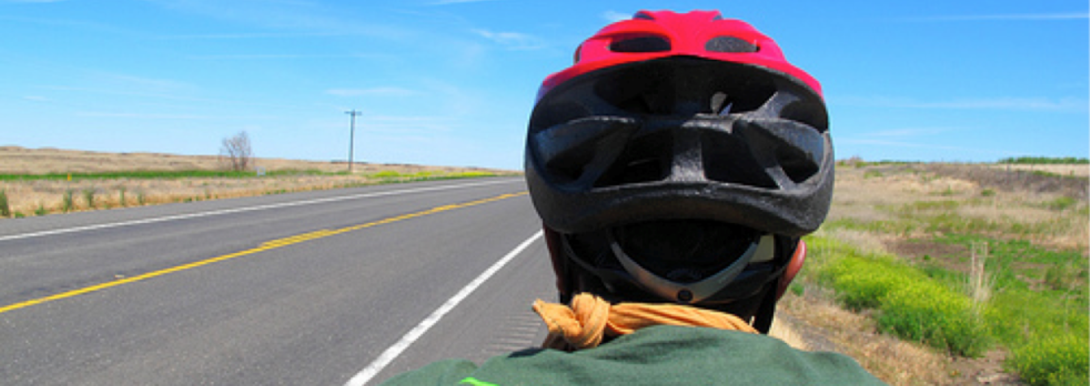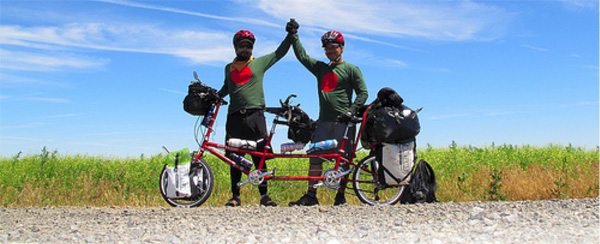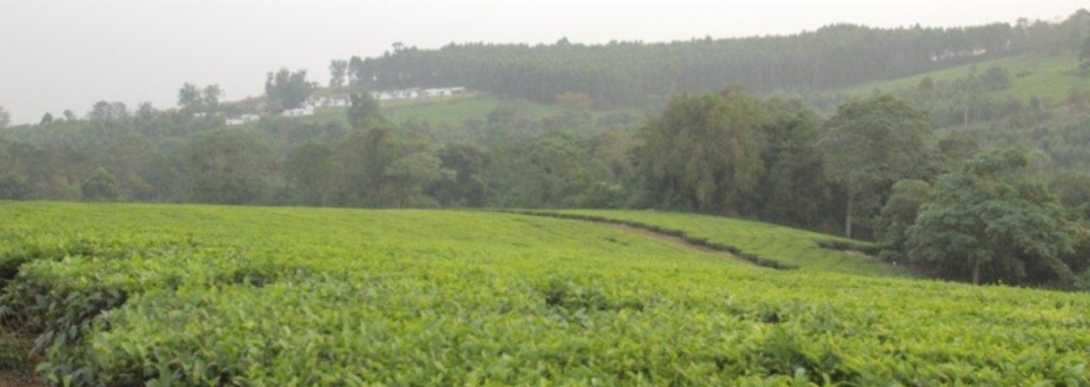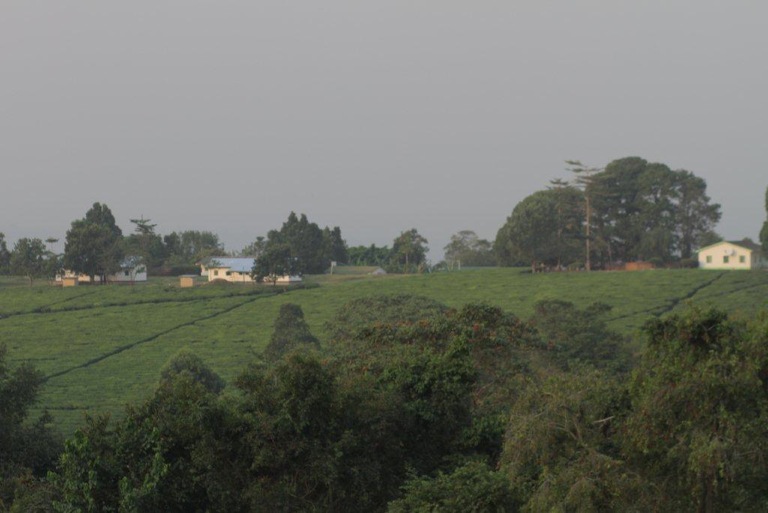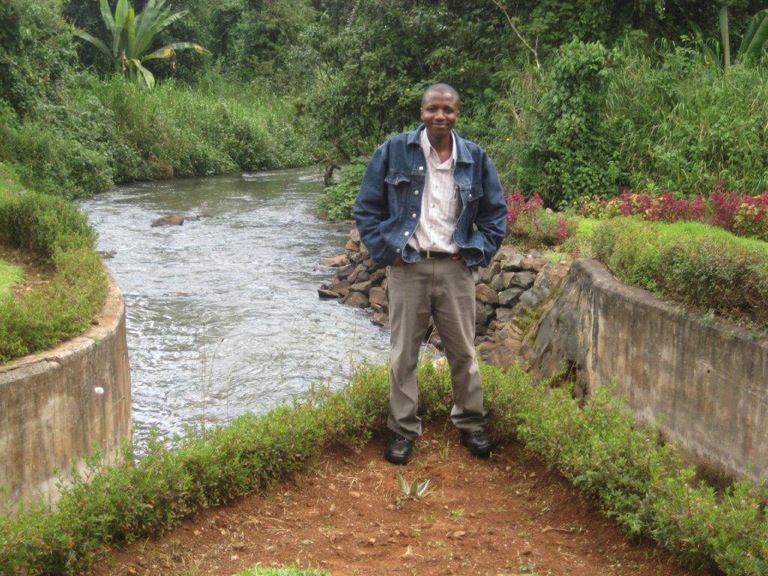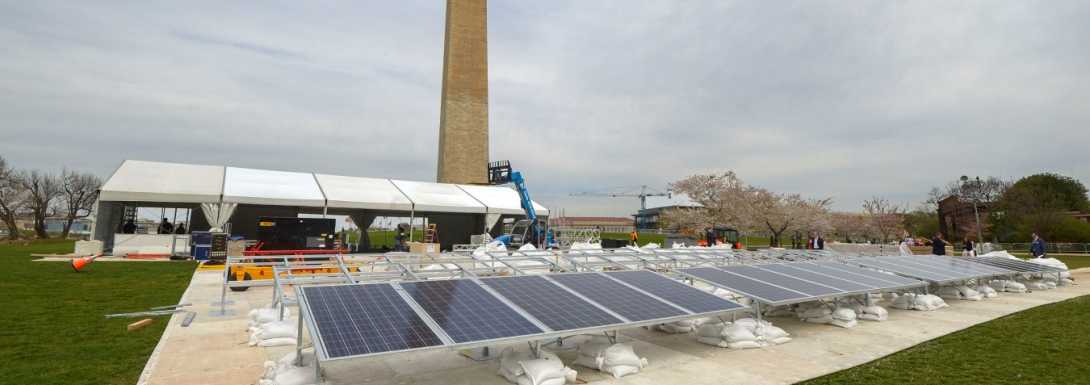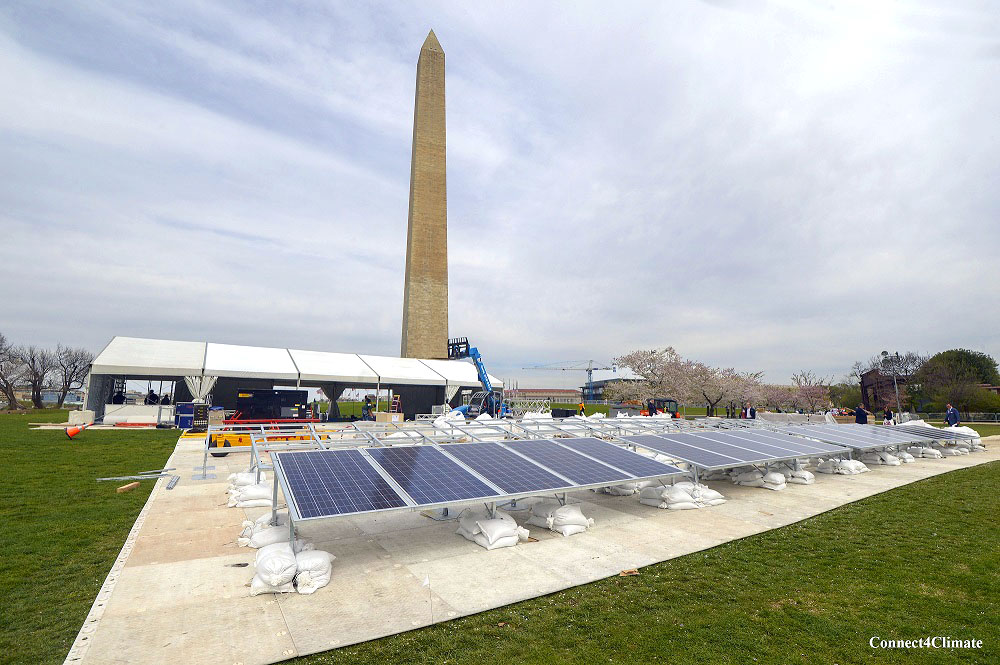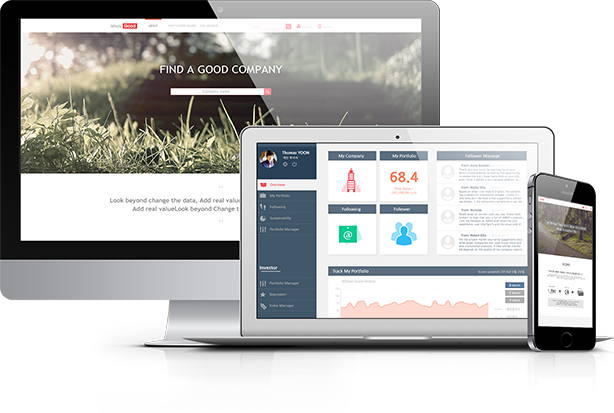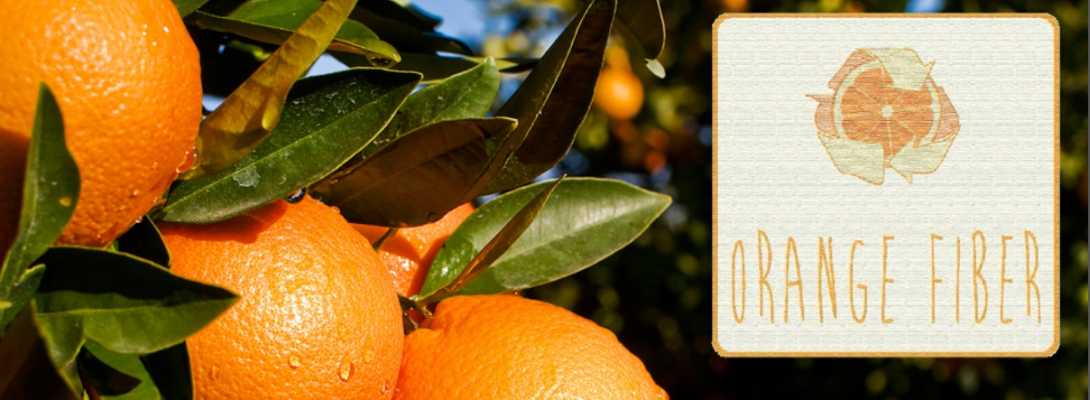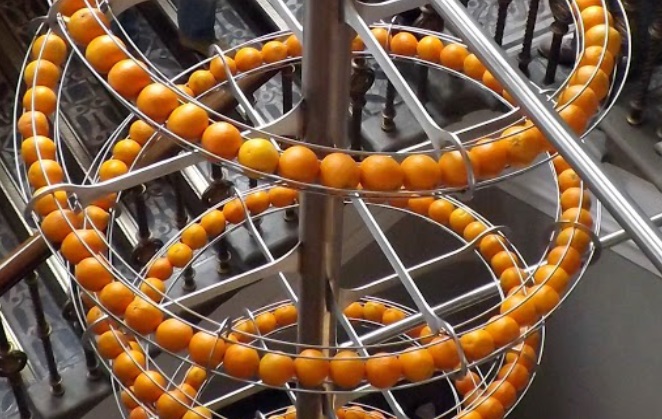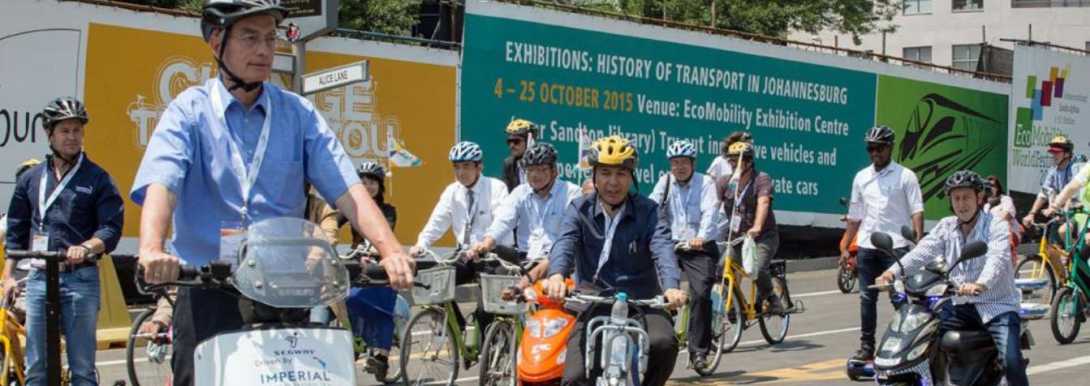
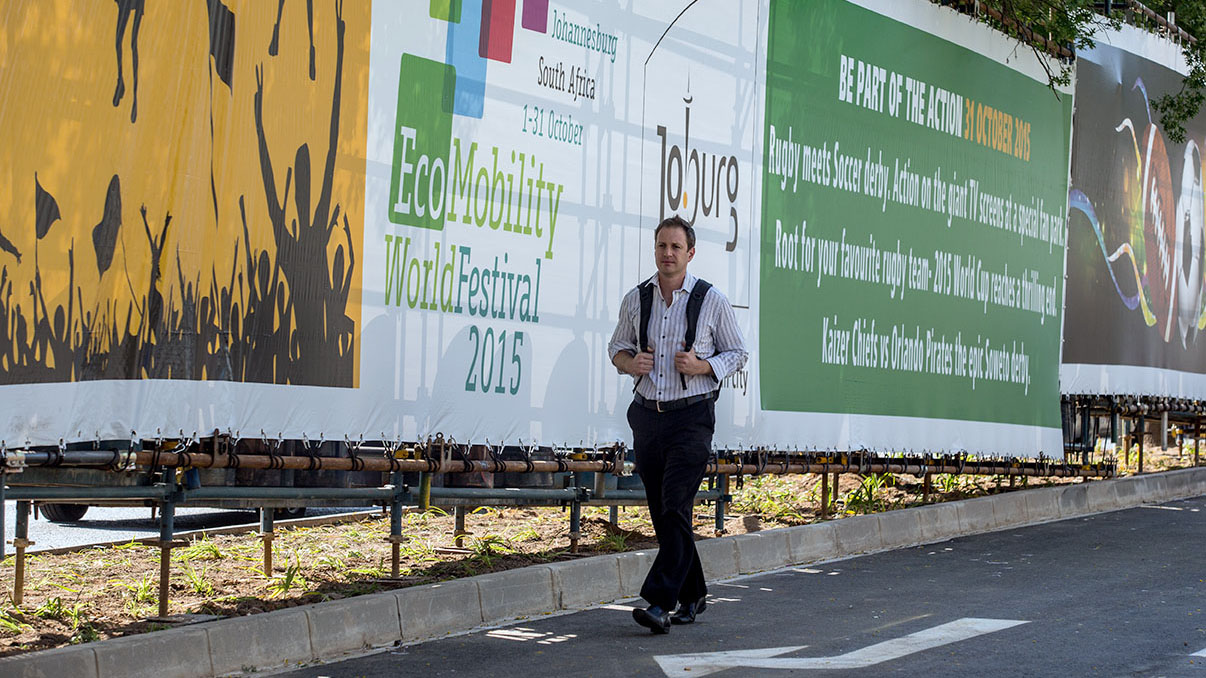
A commuter walking on Sandton's West Street, half of which has been closed to cars. Credit: Simphiwe Nkwali (City of Johannesburg)
Johannesburg may be a city built on the profits of gold, but Mpho Parks Tau, Mayor of South Africa’s largest city, has a green dream. His dream is to make “public transport, walking and cycling more accessible, safe, attractive and cool.”
"For our economy to grow and flourish, we need to decongest our roads and have fewer people spending time in their cars stuck in traffic," he said at the launch of Africa’s first EcoMobility World Festival on Oct.4.
During the festival, Sandton central business district–also known as Africa’s richest square mile–is partially closed to private cars and converted into an ecomobile zone, not just for a car-free day as in Paris, but the entire month. Leading by example, the dynamic 45-year old mayor encourages the city’s 4.8 million residents to go ecomobile as well and "show that is possible for the residents of Joburg to break away from the habit of using private vehicles."
Transport accounts for 31% of South Africa’s energy consumption and 16% of its CO2 emissions. A relevant share of it comes from transport in urban areas. The promotion of ecomobility, which means prioritizing walking, cycling, public transport and shared mobility, is a key part of the city’s action on climate change, air pollution and social inequalities.
The city’s forward-thinking initiative puts Johannesburg on the world map of city-driven climate change action. The opening of a new bike path between Sandton and the township of Alexandra and the “Streets Alive – Jozi W-R-1” parade underlined the link between ecomobility and social inclusion.
“Cycling should become a way of life, our municipalities must become sustainable,” said South Africa’s Transport Minister Dipuo Peters, announcing further national policies in support of ecomobility. South Africa is not only Africa’s largest economy, but also the continent’s biggest polluter, ranking among the 15 largest CO2 emitters worldwide.
“We contribute to climate change systematically through carbon emissions, and the reliance by Joburg commuters on single-passenger vehicles is an inefficiency we must confront,” Mayor Parks Tau declared in his State of the City address in May.

Johannesburg's Executive Mayor Parks Tau (with green helmet) amongst riders of bicycles and other ecomobility vehicles heading off from Sandton CBD, Adfrica's richest square mile, to the low-income township of Alexandra. Credit: Simphiwe Nkwali (City of Johannesburg)
